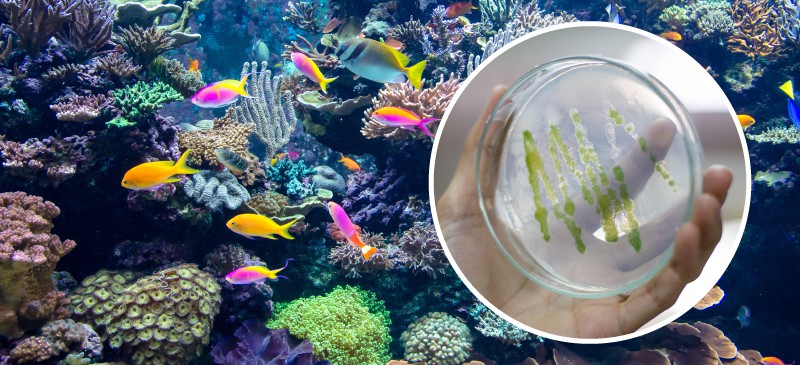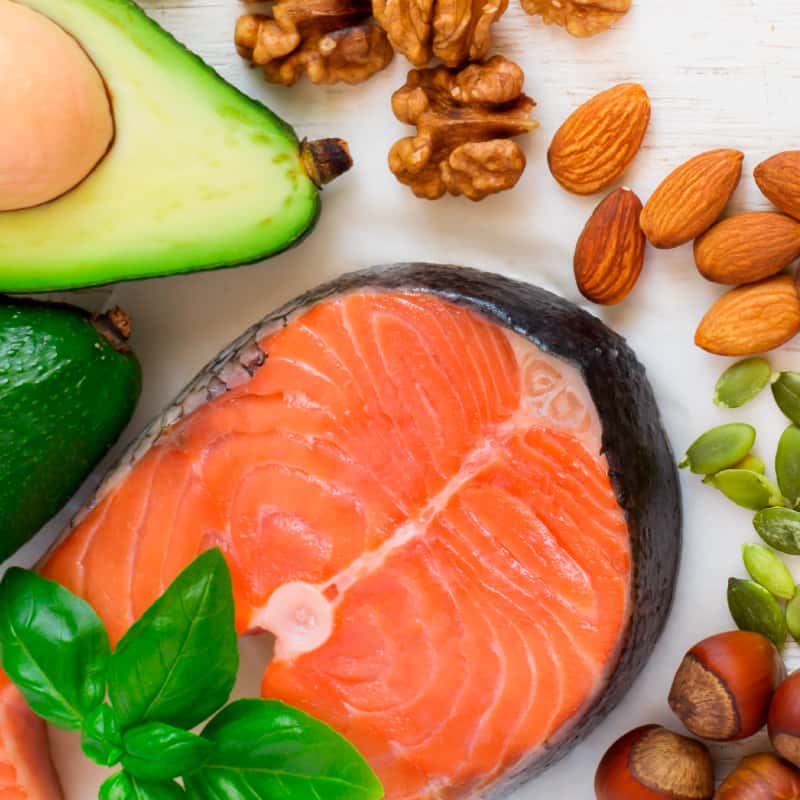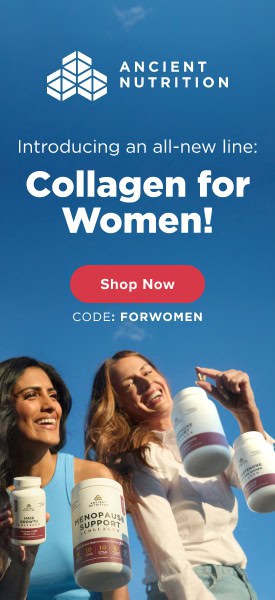This Dr. Axe content is medically reviewed or fact checked to ensure factually accurate information.
With strict editorial sourcing guidelines, we only link to academic research institutions, reputable media sites and, when research is available, medically peer-reviewed studies. Note that the numbers in parentheses (1, 2, etc.) are clickable links to these studies.
The information in our articles is NOT intended to replace a one-on-one relationship with a qualified health care professional and is not intended as medical advice.
This article is based on scientific evidence, written by experts and fact checked by our trained editorial staff. Note that the numbers in parentheses (1, 2, etc.) are clickable links to medically peer-reviewed studies.
Our team includes licensed nutritionists and dietitians, certified health education specialists, as well as certified strength and conditioning specialists, personal trainers and corrective exercise specialists. Our team aims to be not only thorough with its research, but also objective and unbiased.
The information in our articles is NOT intended to replace a one-on-one relationship with a qualified health care professional and is not intended as medical advice.
6 Phytoplankton Health Benefits You Won’t Believe (#1 Is Uplifting!)
February 9, 2018

Derived from the Greek words phyto (plant) and planktos (wandering), phytoplankton are not ocean plants but single-celled aquatic organisms that can be found in both salt and freshwater environments. As the basis for all life formed on Earth, plankton’s history goes back more than 3 billion years. (1) These micro-organisms are responsible for creating planet Earth’s atmosphere and allowing life to flourish so just imagine what they might be able to do for your health!
High in nutrition and health benefits just like their environmental friends sea vegetables, phytoplankton are bursting with nano-sized nutrient particles that are easily absorbed by the body and readily available for use at the cellular level. Aside from giving the ocean its pretty green color, marine phytoplankton is a vegan-safe, micro-algae that can be compared to other nutritional algae like spirulina and chlorella, but phytoplankton might be even more potent and amazing.
6 Health Benefits of Phytoplankton
1. Mood Lifter
Adding a marine phytoplankton supplement to your diet may be able to help your mood, making it a strong addition to any depression diet treatment plan. A pilot study conducted at the University of Utah shows significant improvements in subjects’ depression symptoms after regularly taking this supplement.
Specifically, participants reported feeling full of life, feeling lots of energy, and feeling calm and peaceful. The subjects who took the phtyoplankton supplement during this randomized, placebo-controlled study showed significant increases in scores on the emotional subscale of the SF36. The SF36 is a patient-reported survey used to determine a patient’s functional health and well-being. (2)
2. Potential Anti-Cancer Effects
In a U.S. Food and Drug Administration publication titled “Drugs of the Deep: Treasures of the Sea Yield Some Medical Answers and Hint at Others,” author John Henkel discusses some promising cancer research involving plankton. One of these studies, conducted by professor Yuzuru Shimizu at the University of Rhode Island, evaluated sea-based organisms that exhibit anti-tumor properties. The highlight of the research was a single-celled plankton called dinoflagellates, which has been shown to have cancer-killing potential in National Cancer Institute tests. (3)
Furthermore, marine phytoplankton have also been shown to have anti-cancer effects thanks to the antioxidant content, making them potential natural cancer treatment options. (4)
3. Detoxifying
Marine phytoplankton can have the same oxygenating and detoxifying effects on the body as it does on the ocean. Our blood is mostly water, but what’s pretty cool is that fact that plasma (the watery portion of blood) contains levels of salt and other ions that’s incredibly similar to sea water. (5)
Researchers and scientists have added it to the list of superfoods like spirulina, chlorella and astaxanthin for good reason. It’s said that phytoplankton is the best bioavailable source of superoxide dismutase (SOD). SOD is the body’s most powerful antioxidant enzyme that plays a critical role in reducing oxidative damage and inflammation, and it’s been shown to be an effective heavy metal detox agent. (6)

4. Liver and Immune System Booster
Phytoplankton can be absorbed on a cellular level, so the body doesn’t have to rely on the digestive system or liver for processing. This not only helps the body obtain necessary nutrients when liver function is impaired, but can help restore liver health without taxing the body’s detoxification pathways.
People taking marine phytoplankton have shown higher levels of CD3 in their blood. The amount of CD3 in the bloodstream is indicative of the presence of T cells or T-lymphocytes, which are essential for human immunity. T cells help eliminate viruses and bacteria from the body so if phytoplankton increases T cell levels, then there is a direct positive effect on the immune system. (7)
5. Cellular Regeneration
Supplementing with phytoplankton can strengthen cell membranes and trigger your body to regenerate current cells and create healthy new cells. A team of European botanists, doctors and microbiologists discovered an incredible strain of marine phytoplankton that’s said to hold the greatest nutritional value for human consumption.
The strain is called Nannochloropsis gaditana, and it’s pretty mind-blowing how such a tiny organism — many times smaller than a red blood cell — can hold such amazing health-giving power. It contains more than 65 compounds, including all the amino acids, all the essential fats, vitamins, key minerals, trace elements, rare antioxidants, phospholipids, electrolytes, nucleic acids, enzymes and coenzymes. Nannochloropsis gaditana is able to multiply explosively, which is why it’s believed it can help humans restore their health so quickly at a cellular level. (8)
6. Heart Helper
Phytoplankton are rich in amino acids, antioxidants, minerals and omega-3 fatty acids (specifically EPA and DHA). When it comes to keeping your heart healthy, these are some of the top things that you want to get on a daily basis from your diet and supplements. Omega-3 fatty acids are especially important to heart health, but unfortunately, the body can’t make them on its own so you need to make sure you consume enough.
According to a Harvard Heart Letter, the “marine fatty acids” known as EPA and DHA have a number of potential heart benefits, including easing inflammation, ensuring a steady heartbeat, preventing the formation of dangerous or even deadly blood clots, and lowering triglyceride levels. By consuming phytoplankton, you quickly and easily increase both your EPA and DHA levels, helping reduce the risk of coronary heart disease. (9)
What Are Phytoplankton?
Like seaweed, phytoplankton are not actually plants. Seaweed is a macro-algae while phytoplankton is a micro-algae and a type of plankton. But what is plankton? The plankton definition is marine and freshwater organisms that are too small or weak to swim against the current so they exist in a drifting or wandering state.
These plankton are the self-feeding, plant-like components of the plankton community while the animal-like plankton community is known as zooplankton. There are also bacterioplankton, which play a key role in absorbing nutrients dissolved in the water.
Many people think that phytoplankton are ocean plants or a seaweed. To get really specific on the true phytoplankton definition, they’re neither clearly plants nor animals. They’re better described as protists, which is any member of a group of diverse eukaryotic, predominantly unicellular microscopic organisms.
Phytoplankton absorb energy from the sun (photosynthesis) and nutrients from the water to produce their own food. An estimated 50 percent to 85 percent of Earth’s oxygen is produced by this type of plankton photosynthesis with the remaining percent produced by land plant photosynthesis.
This kind of plankton thrive along coastlines and continental shelves, along the equator in the Pacific and Atlantic Oceans, and in high-latitude areas. There are many different species, and each species has a specific shape. Marine phytoplankton grow abundantly in the oceans around the world and are the foundation of the ocean’s food chain. All other life in the ocean needs them to survive.
How to Use Phytoplankton
Phytoplankton can be found as a supplement in liquid form, but you can also get it in capsule or powdered form as well. You can purchase it at your local health store or online. Make sure to read ingredient labels before buying. I highly suggest purchasing a liquid, non-GMO, raw, unprocessed marine phytoplankton supplement with no fillers.
If you’re used to concentrated green supplements, then you probably won’t mind taking it directly under the tongue. However, if this is too strong for you, it can be added to water, coconut water or a small amount of juice. You can also add it to your smoothies, salad dressings, homemade stocks and broths, and more.
Always store phytoplankton products in a cool, dry place.
Phytoplankton Nutritional Value
Phytoplankton is impressively loaded with life-promoting nutrients, including:
- Omega-3 essential fatty acids (both EPA and DHA)
- Protein
- Amino acids
- Vitamins
- Minerals
- Antioxidants
- Carotenoids
- Phytonutrients
- Phytochemicals
- Trace minerals
- Chlorophyll
Phytoplankton also has an alkaline pH. All living organisms and life forms on Earth depend on maintaining appropriate pH levels, and it’s often said that disease and disorder cannot take root in a body that has a balanced pH. Diets high in refined sugars, soda, processed foods and poor quality animal protein all lead to acidity in the body. If you’re looking to follow a more alkaline diet, phytoplankton can be a great daily addition.
Phytoplankton Recipes
An easy way to to incorporate phytoplankton into your daily meals is to put a few drops into a smoothie. You can add it to pretty much any smoothie recipe you like. This Protein Smoothie with Marine Phytoplankton has a nice mix of protein, fat and antioxidants.
Want to really give those greens in your next salad a serious boost? You have to try this nutritional powerhouse of a salad dressing: Super Green Marine Phytoplankton Dressing. Not only does it have this marine plankton, but it also has ginger, fresh herbs and nutritional yeast among other healthy ingredients.
To make it easier to use you can mix it with water or add it to a seafood or meat-based stock. If you want to use it in any hot dishes, make sure to add it at the end. For example, it can make a great addition to a seafood risotto recipe, but add it after the risotto has been removed from the stove.
Phytoplankton Interesting Facts
When it comes to the ocean’s food web, phytoplankton are the foundation. They’re responsible for feeding everything from microscopic zooplankton to blue whales.
When populations grow explosively,this is known as a bloom. Blooms can cover hundreds of square kilometers and are easily visible in satellite images. A bloom can last for several weeks, but the typical life span of individual phytoplankton is rarely longer than a few days. These blooms are truly toxic and even deadly to both marine life and humans.
If you’re looking for phytoplankton the next time you go swimming, it’s not likely you’ll see any. The majority of them are too tiny to be individually viewed with the naked eye. The only time you’re likely to see them is when they’re present in large numbers. In this situation, some types of phytoplankton will appear as colored patches on the water’s surface. This sighting is made possible by the coloring due to the presence of chlorophyll within phytoplankton’s cells as well as other pigments like phycobiliproteins and xanthophylls.
In the near future, phytoplankton could likely become a key aspect of space travel as a source for food and for gas exchange. The carbon dioxide given off by spacecraft personnel’s breathing would be transformed into organic substances by them, while the oxygen exuded during this process would support human respiration.
Phytoplankton Caution
The biggest risk with phytoplankton supplements is toxin presence. When it’s toxic, like in the case of phytoplankton blooms, it can cause massive fish die-offs and also contaminate seafood with toxins. (10)
It’s highly important to get supplements from a reputable company that follows stringent guidelines to avoid a supplement containing a toxin-producing species of plankton or a plankton that has been harvested from toxin-tainted waters.
If you currently take medication or have any ongoing medical condition, speak with your doctor before taking phytoplankton supplements.
If you’re pregnant, breast-feeding or have an autoimmune disease, it’s best to avoid any algae supplements.
Final Thoughts on Phytoplankton
- Phytoplankton is a truly amazing organism naturally found in the waters all over the planet. It may be microscopic, but don’t judge a superfood by its size. This seaweed cousin may be the answer to what’s been ailing you or what might ail you in the future.
- After billions of years promoting life on Earth, it’s currently available to us in supplement form to possibly improve internal, external and mental health. Hopefully studies will continue, but so far the evidence points toward its potential to kill cancer, improve heart health, lift the mood, improve overall immunity and more.










